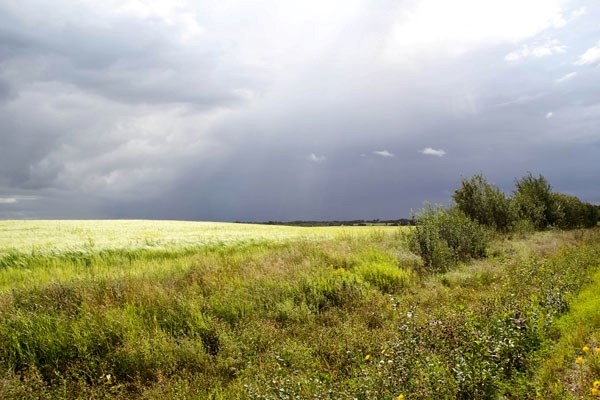Western Canadian farmers will be dealing with some changes in the upcoming months, with the historic ending of the Canadian Wheat Board’s (CWB) monopoly this Aug. 1.
Western Canadian farmers will be dealing with some changes in the upcoming months, with the historic ending of the Canadian Wheat Board’s (CWB) monopoly this Aug. 1.
The CWB monopoly, a mandatory system used by prairie farmers to market their grains, has been in use since the 1930s. Now, instead of selling wheat and barley at a fixed price to the CWB, farmers in western Canada will move into an open marketing system where they can choose to market these crops on their own.
The Conservative government made the decision in 2011 to abolish the wheat board’s monopoly in order to give farmers an opportunity to get a better price for their grains.
Conservative MP for the Westlock - St. Paul area Brian Storseth said the Aug. 1 date represents a step toward a more promising future for those farmers who were previously affected by the monopoly.
“I think (Aug. 1) is a day of celebration for western Canadian farmers,&” explained Storseth, adding those commodities that were controlled by the board have already gone up in price in anticipation of the move to a free market.
“I think this can (have a) positive impact on farmers. I could quote you tons of reports …that showed literally tens of millions of dollars more in western Canadian farmers’ pockets with marketing freedom but now is not the time to be talking about theories. It’s actually happening and we will look forward to the future.&”
The CWB’s single-desk policy will no longer play a factor in farmers’ decisions as to where they market their wheat, but it will still exist as an avenue through which farmers can market their wheat. However, it will no longer consist of a farmer-elected board.
Dean Harder, a Manitoba farmer and Friends of the CWB member, an organization that is pushing the Harper government to retract their decision to abolish the monopoly, said the new wheat board will be problematic in the same way selling to large multinational grain companies is: they don’t put farmers first.
“They could put farmers first,&” said Harder of the old farmer-elected wheat board. “This new wheat board, farmers are at least fourth, because survival is first, then they have to make profits and then they have to appease the sponsors and then comes the farmers.&”
“(The farmer-elected wheat board) could really advocate for farmers, because it was mandated in the wheat board act, farmers are first. No company says farmers are first, farmers are before profits, farmers are before shareholders.&”
Harder was part of a group that took part in an organized protest outside of the CWB’s headquarters in Winnipeg, Man. on Aug. 1 to combat the changes made to the board by the Harper government, but irritation with the new changes is not limited to the small protesting group.
Gordon Graves, a farmer from the Bonnyville area, agrees with Harder when it comes to the decisions of the government to abolish the board.
“I think the government screwed up royally,&” said Graves, proposing that many farmers will continue to use the CWB to market their wheat instead of doing it on their own. “Farmers don’t want to market their own (wheat). What (they) should have done, in my opinion, is kept the farmer-elected board because now we have no say in it.&”
Graves expressed concern over agriculture as a whole moving to a more corporate structure, stating the new changes “plays more in favour of the huge corporate farms and more in favour of the corporations that are going to be doing the selling than it does the individual farmer.&”
Storseth recognized some producers may have concerns over the changes but said that was normal with any sort of change. He said the ability of farmers to market other commodities that were not overseen by the wheat board proves that they know how to market their products and, as time moves forward, they will see the advantages of doing the same with wheat and barley.
“There are always people that are concerned about change. That’s natural and can be very healthy as well, but at the end of the day, (they already) market canola or other off-board commodities that are already in a competitive market place and do a very good job at it,&” said Storseth. “I think that you will find with …the changes to the Canadian wheat board …and other changes that our government is going to make, (it) will help make our system …for our western Canadian farms more productive and they will be better off.&”
